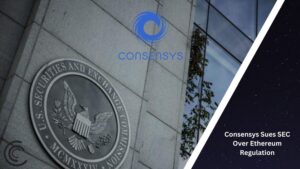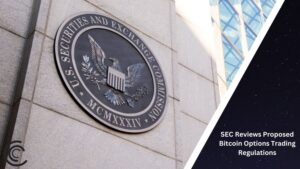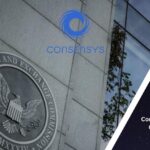Key Takeaways:
- Letitia James, the attorney general of New York, filed a lawsuit against CoinEx on the grounds that it conducted business without being authorised to do so by the state.
- James claimed that CoinEx’s actions broke the Martin Act in a lawsuit that was submitted to a New York state court in Manhattan.
CoinEx is being sued by Letitia James, the attorney general of New York, for purportedly neglecting to undergo state registration. According to the documents, the platform represented itself as a cryptocurrency exchange and was overlooked to qualify as a broker-dealer for securities and commodities.
Prior to providing services in the state, Coinex allegedly failed to file as an exchange with the Securities and Exchange Commission of the United States (SEC), a commodities broker-dealer with the Commodity Futures Trading Commission, or with New York regulators.
Despite this, the business claimed to be an exchange and provided services analogous to those provided by national securities exchanges or other comparable networks on its website.
Global regulatory agencies stepped up their efforts to standardise the crypto market’s rules after the FTX meltdown in November 2022. Despite the crackdown, US authorities have been committed to upholding the law without clarifying the legal status of cryptocurrencies.
According to a petition submitted on Wednesday to the Supreme Court of the State of New York, CoinEx “offered, sold, purchased, and executed transfers in cryptocurrencies that are commodities and securities, without renouncing been enrolled as a commodity broker dealer and a securities broker or dealer in New York.”
As mandated by Article 23-A of the Martin Act, also known as the New York General Business Law (“GBL”), CoinEx was unsuccessful in registering with OAG as a securities broker, dealer, or commodity broker-dealer. According to the Martin Act, failing to register is an unlawful conduct.
According to the filing, “The Tokens each come within the definition of commodities under the Martin Act, which encompasses any foreign currency and any other good, article, or material.”
Through accounts, contracts, or agreements, CoinEx sells and offers to sell commodities to accounts in New York, mainly for investment purposes. Due to their representation as financial investments in shared businesses where profits will mainly come from the labour of others, the Tokens also qualify as securities under the Martin Act.
According to Attorney General James, “Our laws are intended to protect New Yorkers, and when companies disregard them, they place residents, investors, and businesses at risk. The time when cryptocurrency firms like CoinEx pretended that the laws did not apply to them is over. My office will keep up its protection of New York investors and enforcement of the rules of our state.“
The petition further asserts that under state law, the AMP token from Flexa, the LBC token from LBRY, the LUNA token from Terraform Labs, and the RLY token from Rally are both securities and commodities. According to a testimony signed by Senior Detective Brian Metz of New York, he used the CoinEx website in October to buy and trade these tokens using ether (ETH).
On Wednesday, a complaint regarding a violation of the Martin Act was submitted to a New York state judge in Manhattan. CoinEx, which was established in December 2017, states that its 30-day trade value was $13.66 billion.











